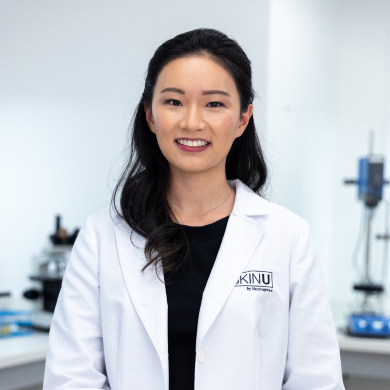Ingredient Glossary
At Neutrogena®, the science of skin care starts with formulations. We combine safe, clinically backed ingredients to design products that feel great and deliver results. We’re sharing our ingredient glossary to give you all the facts, empowering you to make informed decisions for your skin health. If it’s vital to your skin, we make it our science.

Ingredient Glossary

Alpha-Hydroxy Acid (AHAs)
Naturally or synthetically derived acids that complement skin's natural turnover process. Benefits of AHAs include smoother and brighter-looking skin.

Substances that may prevent or delay some cell damage. Antioxidants have been shown to neutralize oxidative stress on the skin's surface, which is caused by environmental aggressors like the sun, pollution, and cigarette smoke.

An extract derived from the kernels of the Moroccan argan tree. It's rich in natural oils and vitamin E, so it provides both hydrating and antioxidant benefits to the skin. It's commonly found in moisturizers and serums.

A plant-derived ingredient isolated from the seeds of the plant Psoralea corylifolia (Buguchi). Bakuchiol is a small molecule that mimics certain actions of retinol via topical skin application.

This ingredient has antibacterial properties that helps reduce bacteria on the skin that lead to breakouts. It's also helpful in preventing and treating the formation of clogged pores or comedones — what we commonly call blackheads and whiteheads.

Beta Hydroxy Acids (BHAs)
These powerful exfoliators help shed dead skin cells. They also boast anti-aging abilities, reducing the appearance of fine lines and improving skin texture. Salicylic acid is one common BHA found in acne washes, spot treatments, moisturizers and creams.

A B vitamin found in meat, eggs, seeds, nuts and some vegetables that helps turn food into energy. It plays a major role in the growth and health of hair and nails. It can also be applied topically to the skin as a moisturizing oil.

Collagen
This is the most common protein found in the human body. It's essential to forming your muscles, bones and skin — as well as holding all of these components together. As we age, we lose collagen, which is why it can be helpful to use products that help reduce the visual effects of decreased collagen production.

A colorless, odorless liquid sourced from plants that is used as an ingredient in moisturizers for its ability to attract and seal water into skin cells, improving the overall appearance of fine lines and puffiness. It's often found in facial moisturizers and body lotions.

A chemical compound that is found naturally in skin and widely used in skincare products. Its intense hydrating benefits — and unique ability to hold many times its weight in water — make it a popular active ingredient in many hydrating serums and masks.

A chemical exfoliating ingredient that helps to slough off dead skin cells. PHAs help skin appear younger, brighter, and healthier looking.

Pro-Vitamin B5
Also known as pantothenic acid, pro-vitamin B5 is a conditioner that helps skin feel softer and nourished. It has also been found to reduce facial lesions when applied topically in the long-term.

